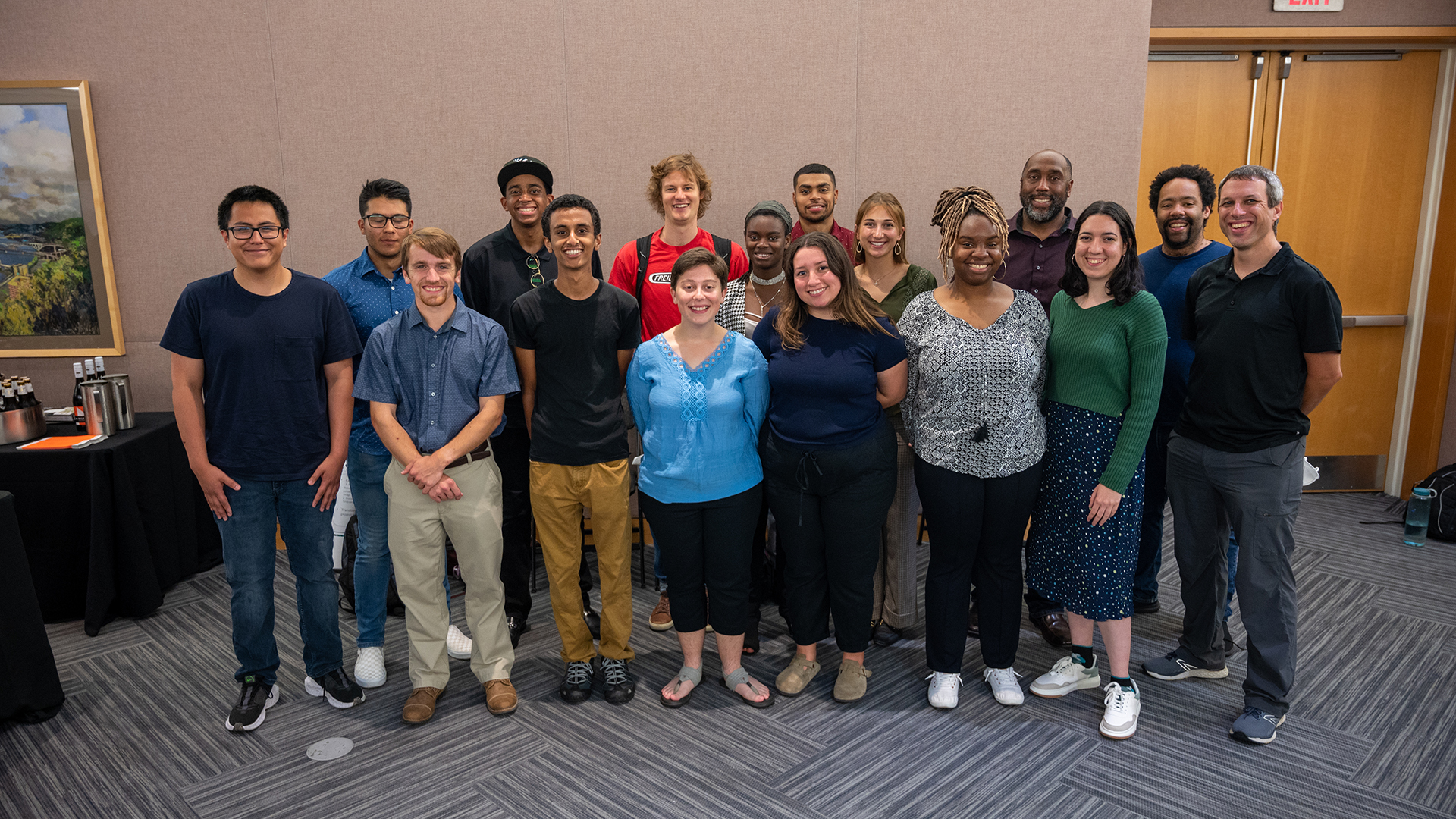

In This Section
Matthew Rosenzweig Awarded NSF Career Award
By Amy Pavlak Laird Email Amy Pavlak Laird
- Associate Dean of Marketing and Communications, MCS
- Email opdyke@andrew.cmu.edu
- Phone 412-268-9982
Carnegie Mellon University mathematician Matthew Rosenzweig has received a Faculty Early Career Award (CAREER) from the National Science Foundation. One of the most prestigious awards for young faculty, CAREER awards recognize and support those who exemplify the role of teacher-scholars through their outstanding research and teaching.
Rosenzweig, an assistant professor of mathematical sciences, received the five-year grant to expand his work on studying systems of particles with long-range interactions, like charged particles in a gas. An important class of systems feature interactions with the power law decay found in electrostatics or gravitation. Often called Coulomb/Riesz gases, they consist of a large number of interacting particles — so large that describing the exact evolution of an individual particle in such systems is intractable.
Instead, mathematicians like Rosenzweig rely on non-linear partial differential equations (PDEs) as asymptotic models of what should happen in these physical systems. An asymptotic approach gives an approximation of the system's typical behavior through the solution of a single PDE, which can be efficiently computed. The key question is: how good of an approximation is it? Rosenzweig works to understand the dynamics of the asymptotic equation and how well the solutions approximate the underlying physics.
“Coulomb/Riesz gases attract interest from both mathematicians and physicists because of their rich structure and complex behavior,” Rosenzweig said. “Studying them involves techniques across analysis, PDE, and probability, inspiring new mathematics. Despite their long history, important physical questions remain unanswered.”
Rosenzweig’s NSF project aims to advance the understanding of how the system disorder grows with respect to parameters such as the number of particles and temperature and how it changes over time. The results can be applied to modeling states of matter, such as plasmas, and to understanding problems that have particle-like behavior, like vortices in fluids or superconductors, and even the training of neural networks.
“The methods developed to tackle these problems, based on measuring how the energy or entropy of a system varies in space and time, will establish new connections between different areas of mathematics of independent interest,” he said.
Rosenzweig's research lies at the intersection of mathematics, physics, and statistics — a confluence of topics that he thinks is particularly useful for students to study. Part of the NSF award will support his development of new courses and mentoring opportunities for high school and undergraduate students.
“Statistical mechanics teaches students how to analyze and interpret data, identify patterns and quantify uncertainty,” he said. “These are all skills that are relevant in a variety of settings, and students can take these skills with them throughout whatever path that they pursue.”
He is developing a course on the elements of statistical mechanics for the Pennsylvania Governor’s School for the Sciences (PGSS), a program for rising high school seniors who reside in Pennsylvania. During the intensive 5-week program, PGSS students experience educational and research activities not normally available to them through their high schools. It is hosted at Carnegie Mellon during the summer.
Rosenzweig is also partnering with the Summer Undergraduate Applied Mathematics Institute (SUAMI), which is hosted by the Department of Mathematical Sciences. The eight-week summer research program provides students with strong academic records — regardless of background — the opportunity to work on projects related to applied mathematics under the direction of research faculty or postdoctoral researchers. Rosenzweig’s NSF award will provide funding for several undergraduates to work with him, his graduate students and postdoctoral researchers.
“CMU has a vibrant ecosystem of undergraduate summer research,” he said, “so there's a community of students who can socialize and talk about math, which I think is really important.”
In addition to the summer programs, Rosenzweig is also creating a new mathematical sciences course for Carnegie Mellon students that’s focused on developing students’ written and oral communication skills. Students will read math papers, present them to the class and eventually write their own. He anticipates that students will not only learn new math but will also learn key communication skills, which are valuable no matter the career path the students choose.
Rosenzweig joined Carnegie Mellon in 2023. In early 2025 he was part of the Mathematical Sciences team that was awarded a multi-year grant from the NSF to establish a new research training group (RTG) in applied analysis. The Frontiers in Applied Analysis RTG will delve into the use of sophisticated mathematical models to solve next-generation challenges in science and technology.
